
For our 2024 rankings, the research team at Nursing Schools Almanac collected data on nearly 3,000 nursing schools and campuses throughout the United States. We evaluated each school on three dimensions:
- The institution’s academic prestige and perceived value
- The breadth and depth of nursing programs offered
- Student success, particularly on the NCLEX licensure examination
We then combined these assessments into an overall score and ranked the schools accordingly. For a detailed description of our assessment methodology and dimension weights, please see here.
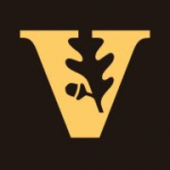
#1: Vanderbilt University
Vanderbilt University School of Nursing focuses solely on graduate nursing study. The university offers traditional and direct-entry MSN programs, eleven distinct post-master’s certificates for aspiring advanced practice registered nurses (APRNs), and two doctoral options (DNP and PhD). The direct-entry MSN program graduates approximately 150 new nurses annually who have passed the NCLEX exam at a 93% first-try rate over the past decade. Vanderbilt’s APRN specialties run the gamut from family nurse practitioner to nurse-midwifery to nursing informatics. The MSN program also partners with Vanderbilt Divinity School to offer two innovative dual degrees.
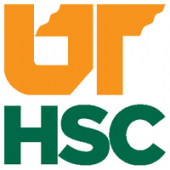
#2: University of Tennessee Health Science Center
The UTHSC College of Nursing offers students a breadth of options at both the baccalaureate and doctoral levels. Undergraduates can pursue either a 12-month accelerated second degree or an RN-to-BSN completion pathway. Over the past decade, the accelerated BSN program has scored a phenomenal 98% first-time pass rate on the NCLEX licensure examination. Doctoral candidates have several options. UTHSC’s DNP program has nurse practitioner concentrations in adult-gerontology acute care, family nursing, neonatal nursing, pediatric acute care, pediatric primary care, and psychiatric-mental health nursing. PhD and dual DNP/PhD programs are also available.
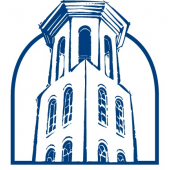
#3: Belmont University
Belmont University’s School of Nursing has program options for students new to nursing, RNs looking to complete their baccalaureate education, and seasoned nurses seeking career advancement. Undergraduate offerings include a traditional four-year BSN, an accelerated BSN, and an RN-to-BSN program. Belmont graduates 100-150 prelicensure BSN students each spring, who have posted an impressive first-time NCLEX pass rate of 90% over the past decade. Graduate options include MSN, post-bachelor’s DNP, and post-master’s DNP programs. The School of Nursing provides several innovative opportunities in its curriculum, include the Cambodia Study Abroad Program and the Nursing Christian Fellowship.
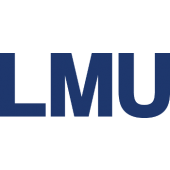
#4: Lincoln Memorial University
LMU’s Caylor School of Nursing offers programs across seven physical sites and a robust online platform. The school’s main campus in Harrogate offers ASN, BSN, and MSN programs. Three satellite locations offer ASN programs only: Alcoa, TN; Corbin, KY; and Physicians Regional Medical Center in Knoxville, TN. The Cedar Bluff site in Knoxville offers LMU’s BSN and MSN programs, while the Kingsport Center for Higher Education offers just the MSN program. A partnership with Florida Hospital provides accelerated ASN and BSN programs in Tampa, while the online platform delivers the school’s RN-to-BSN and DNP programs. LMU students from all campuses perform well on their licensure exams. For example, Tennessee graduates from the ASN program have scored a 93% first-time NCLEX pass rate over the past decade, while graduates from the BSN program have scored at a 95% first-time rate over the same timeframe.
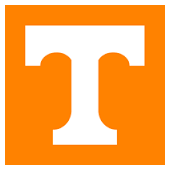
#5: University of Tennessee, Knoxville
The UT College of Nursing enrolls approximately 750 students across its academic programs. Seventy percent of these students pursue a BSN degree through one of three pathways: a traditional four-year program, an accelerated 12-month option, or an RN-to-BSN completion program. UT’s prelicensure BSN graduates are well-prepared for the NCLEX exam, with a 94% first-time pass rate over the past decade and an exceptional 98% or better first-time pass rate in each of the past three years. The remaining thirty percent of nursing students pursue an MSN, DNP, or PhD degree. UT’s graduate nursing department offers concentrations for aspiring nurse practitioners, clinical nurse specialists, nurse anesthetists, and nursing administrators. Students have the opportunity to participate in the school’s International Outreach Program, which includes an immersive service mission to Costa Rica.

#6: Union University
The Union University School of Nursing offers well more than 15 different nursing programs. Undergraduates can pursue five pathways to a BSN degree: traditional, accelerated, LPN-to-BSN, RN-to-BSN, and a unique First Step to BSN program which helps adult students with few college credits earn their degree. The school graduates 130-170 prelicensure BSN students annually. These graduates have passed the NCLEX exam at a 94% rate over the past decade, well above the state and national averages. Union’s graduate nursing students can pursue one of six MSN tracks, six DNP tracks, or seven graduate certificates in nursing.

#7: Southern Adventist University
Southern Adventist University’s School of Nursing is housed in Florida Hospital Hall, a state-of-the-art center for nursing education. The school offers several prelicensure pathways including a traditional ASN degree, an LPN-to-RN bridge program, and a recently launched four-year BSN degree. Over the past decade, graduates of the associate degree program have maintained an 87% first-time pass rate on the NCLEX licensure exam. Registered nurses seeking further education can pursue an RN-to-BSN or RN-to-MSN completion program. The graduate nursing department leads MSN and DNP programs with numerous emphasis areas. Aspiring nurse practitioners can pursue primary care roles in adult-gerontology, family care, or psychiatric-mental health, as well as an acute care role in adult-gerontology.
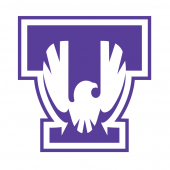
#8: Tennessee Tech University
Tennessee Tech University is home to the Whitson-Hester School of Nursing. Undergraduate offerings include a traditional four-year BSN, an accelerated second bachelor’s degree, and an RN-to-BSN degree completion pathway. TTU graduates approximately 100 prelicensure BSN students annually, and they have passed the NCLEX exam at a stellar rate of 97% over the past decade. In fact, the 2018 and 2020 graduating BSN classes achieved a 99% NCLEX pass rate. TTU offers several MSN specializations online including family nurse practitioner, nursing administration, and nursing education. The school’s DNP program is conducted in consortium with East Tennessee State University. The two institutions jointly deliver concentrations in executive leadership and five nurse practitioner fields.
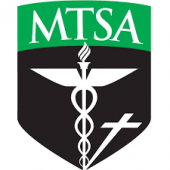
#9: Middle Tennessee School of Anesthesia
Middle Tennessee School of Anesthesia is the only independent and fully accredited anesthesia institution in the nation. The school recently phased out its master of science degree with a focus in anesthesia, enrolling all new students in the doctor of nurse anesthesia practice (DNAP) terminal degree program. MTSA offers two DNAP tracks: a three-year precertification program for baccalaureate-prepared nurses, and a two-year online completion program for existing certified registered nurse anesthetists. Since the school’s founding, greater than 99.75% of graduates have passed the National Certification Examination administered by the National Board of Certification and Recertification for Nurse Anesthetists. The school has achieved a 90% first-time pass rate over the past five years, which far exceeds the Council on Accreditation’s preferred pass rate of 81% during that time period.
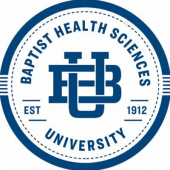
#10: Baptist Health Sciences University
Baptist University prepares students for careers of service and leadership by providing a comprehensive health sciences education in an environment of Christian principles. The school partners with Baptist Memorial Health Care to extend the learning environment beyond the classroom, with clinical experiences in a broad range of common healthcare settings. Nursing students can pursue a traditional prelicensure BSN, an RN-to-BSN completion pathway, or a DNP degree designed for aspiring adult-gerontology nurse practitioners. The DNP program offers both post-baccalaureate and post-master’s pathways, with concentrations of study in acute care and primary care. The traditional BSN program graduates approximately 150 students annually, with an impressive 90% first-time NCLEX pass rate over the past decade.

#11: University of Tennessee at Chattanooga
The University of Tennessee at Chattanooga offers several pathways through its School of Nursing. Undergraduates can pursue a traditional on-campus BSN or the RN-to-BSN gateway program. Traditional BSN students have a phenomenal track record of success on the NCLEX licensure examination, including a 96% first-time pass rate over the past decade and a perfect 100% pass rate in 2019. The gateway program offers a 16-month BSN completion curriculum in online cohorts so that registered nurses can balance their studies with their work and family responsibilities. Graduate students can pursue several DNP concentrations including adult-gerontology acute care nurse practitioner, family nurse practitioner, nurse anesthesia, and nursing administration systems. The School of Nursing also offers a post-master’s DNP pathway that culminates in an innovative translational project designed to solve a significant healthcare problem.
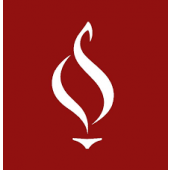
#12: Lee University
Serving more than 5,000 students, Lee University is one of the largest Christ-centered institutions in Tennessee and the largest member of the Appalachian College Association. The university’s School of Nursing opened its doors in 2014 with the launch of a traditional four-year bachelor of science degree in nursing. BSN students are admitted from three groups: first-time freshmen, transfer students, and existing students who wish to change their major. Prelicensure BSN students have enjoyed a stellar 98% NCLEX pass rate since the program’s launch. More recently, the School of Nursing initiated Lee University’s first doctoral program, a doctor of nursing practice degree. This program offers two pathways (post-BSN and post-MSN) for aspiring family nurse practitioners, as well as a traditional post-master’s doctorate for APRNs. The DNP program began teaching its first class of admitted students in January 2019.
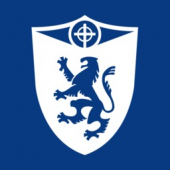
#13: King University
King University resides on 135 scenic acres nestled in the foothills of the Smoky Mountains. The School of Nursing offers a breadth of degree programs at both the undergraduate and graduate levels. Undergraduates can pursue either a prelicensure BSN or an RN-to-BSN degree completion pathway. Prelicensure BSN students have scored an 84% first-time pass rate on the NCLEX licensure examination over the past decade. Graduate nursing students can choose from four MSN specializations: family nurse practitioner, nurse educator, nursing administration, and pediatric nurse practitioner. The university also offers a post-master’s certificate in the first two areas, as well as a terminal DNP degree that prepares students for advanced nursing practice and leadership in the profession.
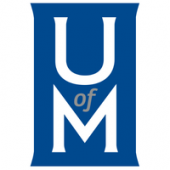
#14: University of Memphis
The University of Memphis’s Loewenberg College of Nursing is home to more than 1,000 students enrolled on two physical campuses – the flagship Memphis campus and the Lambuth campus in Jackson, TN – as well as online. At the undergraduate level, the college offers three pathways to a BSN degree. Traditional undergraduates can complete the nursing curriculum in five semesters, while students with a non-nursing bachelor’s degree can prepare for licensure in just four semesters. Finally, existing nurses can complete a flexible online 31-credit RN-to-BSN curriculum. The prelicensure pathways graduate approximately 250 students annually, with an excellent 90% NCLEX pass rate over the past decade. At the graduate level, UofM offers an MSN degree, post-master’s certificates, and a post-master’s PhD in nursing. MSN students can select from concentrations in executive leadership, family nurse practitioner, and nursing education. The nursing PhD program just enrolled its first cohort. The curriculum is conducted fully online with a primary focus on health equity research in education, practice, and policy.

#15: East Tennessee State University
East Tennessee State University’s College of Nursing is one of the largest nursing schools in the state. The college operates nine nurse-led clinics in Northeast Tennessee to address the rural region’s underserved population. At the undergraduate level, ETSU offers four pathways to a BSN degree: traditional prelicensure, accelerated second degree, LPN-to-BSN bridge, and RN-to-BSN completion. Approximately 200-250 students graduate annually from the prelicensure BSN pathways, with an 88% first-time pass rate on the NCLEX exam over the past decade. Graduate nursing students can pursue an MSN, DNP, or PhD degree. ETSU offers six different nurse practitioner specialties across its master’s, graduate certificate, and doctoral programs. The most recent cohort of family nurse practitioner students achieved a stellar 98% pass rate on the FNP certification exam, while psychiatric-mental health graduates achieved a perfect 100% pass rate on the PMHNP certification exam.
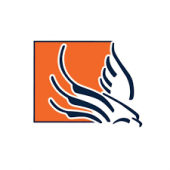
#16: Carson-Newman University
Carson-Newman University is a Christian institution that serves approximately 2,400 students across fifty undergraduate majors and eleven graduate degrees. The university offers several nursing pathways. The Department of Undergraduate Studies in Nursing conducts a BSN program with both traditional and accelerated formats. The traditional track takes four years to complete, while the accelerated program condenses the curriculum into eight continuous semesters. Across both tracks, the university graduates approximately forty students annually. Over the past decade, these BSN graduates have scored a 94% NCLEX pass rate, including a perfect 100% pass rate for the graduating classes of 2017 and 2018. Carson-Newman also conducts an online RN-to-BSN pathway that working professionals can complete in as little as 14 months. Finally, the Department of Graduate Studies in Nursing offers an MSN degree with tracks for aspiring family nurse practitioners and nurse educators.
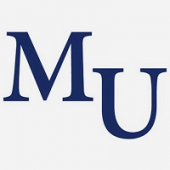
#17: Marian University
Marian University’s Leighton School of Nursing offers an accelerated second degree BSN in partnership with Tennessee’s leading faith-based healthcare system, Saint Thomas Health. Incoming students must possess a bachelor’s degree in a non-nursing field, enabling them to complete the program in as little as 16 months of fulltime study. The curriculum includes a rigorous mix of online classes, on-site labs, and clinical rotations at Saint Thomas. A new BSN cohort begins each January, May, and August. Graduates have performed strongly on the NCLEX licensure examination, with a 90% first-time pass rate since the program’s inception.

#18: Milligan University
Milligan University is a Christian liberal arts institution that serves 1,200 students hailing from thirty-five states and twenty-five countries. Among the school’s more than 100 programs of study is a nursing curriculum that offers both prelicensure and RN-to-BSN tracks. Students have the opportunity to work in numerous healthcare settings including major medical centers, smaller urban hospitals, community health centers, rural hospitals, primary care clinics, home health programs, and parish nursing programs. Graduates of the traditional BSN program have enjoyed an 86% first-time pass rate on the NCLEX licensure exam over the past decade. In fact, two of the past three graduating classes have scored a perfect 100% NCLEX pass rate. Nearly every prelicensure student is employed or accepted to graduate school at the time of graduation. Milligan’s RN-to-BSN program began offering coursework entirely online in January 2019. A new cohort begins each January, and students may complete their studies in as little as five semesters.
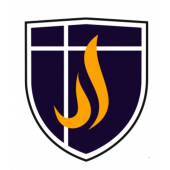
#19: Lipscomb University
Lipscomb University is one of the top Christian universities in the United States. The School of Nursing offers two pathways to a bachelor of science degree: a traditional prelicensure track and an RN-to-BSN degree completion track. Prelicensure students learn in the school’s spacious nursing building that includes the region’s best-equipped health simulation laboratory. The BSN curriculum includes 32 credit hours of clinical placements. It also provides hands-on training in five foundational nursing fields: critical care, medical/surgical care, mental health, obstetrics, and pediatrics. Graduates of the traditional BSN track have performed exceptionally well on the NCLEX licensure examination, with a 95% first-time pass rate over the past five years. Lipscomb’s RN-to-BSN program is conducted entirely online, and it provides up to 27 college credit hours for work experience. Students can complete the program in as little as 18 months.
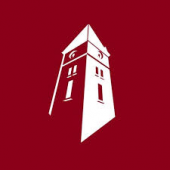
#20: Cumberland University
The Jeanette C. Rudy School of Nursing and Health Professions is one of three major academic schools at Cumberland University. The school offers both baccalaureate and master’s degree programs in nursing. Undergraduates can pursue three BSN pathways: a traditional program with fulltime and part-time enrollment options, an accelerated second degree, and an RN-to-BSN completion track. Collectively, the prelicensure pathways graduate 90-120 students annually. Over the past decade, these prelicensure BSN graduates have averaged an 85% first-time pass rate on the NCLEX licensure examination. At the graduate level, Cumberland University conducts an online MSN degree program with specialization tracks in both nursing education and nurse executive leadership / administration.
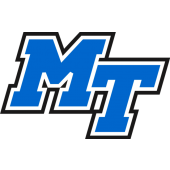
#21: Middle Tennessee State University
Middle Tennessee State University has one of the most extensive study abroad programs, with ties to universities in China, Vietnam, Bangladesh, and numerous other countries. The university is also among 108 institutions recognized by the Chronicle of Higher Education for its high production of Fulbright scholars. MTSU’s School of Nursing offers two programs: a traditional four-year baccalaureate degree and a master’s degree with two concentrations (family nurse practitioner, psychiatric-mental health nurse practitioner). BSN candidates are accepted into the upper division after three semesters of pre-nursing studies. The university graduates approximately 75-100 students annually from the BSN program. These graduates have an excellent track record on the NCLEX licensure exam, with a 90% first-time pass rate over the past decade. The School of Nursing’s MSN program is limited to in-state applicants, with convenient start dates each spring, summer, and fall term.

#22: Austin Peay State University
Austin Peay State University is a public, doctoral-level institution that serves approximately 11,000 students. Austin Peay is Tennessee’s fastest-growing state university, with enrollment expected to reach 15,000 students by 2025. The School of Nursing offers two pathways to a bachelor of science in nursing, an MSN degree with two concentrations, and a post-master’s certificate option. Baccalaureate students can pursue either the traditional prelicensure track or the RN-to-BSN completion track. The traditional pathway graduates approximately 85-100 students annually. These BSN graduates have achieved a phenomenal 95% NCLEX pass rate over the past decade. At the graduate level, MSN students can pursue specialization as either a family nurse practitioner or a nurse educator, with post-master’s certificates also available in both fields. Classes for both the RN-to-BSN and graduate programs are primarily delivered in an online format, with both fulltime and extended plans of study. Students have opportunities for enhanced learning and networking through occasional campus visits.

#23: Freed-Hardeman University
Freed-Hardeman University is a Christian liberal arts institution currently celebrating its 150th anniversary. The school serves nearly 2,000 students through twelve academic departments organized into six schools. Housed within the College of Arts and Sciences, the Department of Nursing offers a traditional prelicensure BSN program. Nursing students first complete general education coursework on the natural sciences, behavioral sciences, liberal arts, humanities, and Bible. They then complete nursing coursework on a range of critical topics, including healthcare for adults, children, maternity patients, the mentally ill, and the physically ill. The curriculum includes 650 hours of clinical experience, with an 8:1 student-to-clinical-instructor ratio. Since the inception of the program, BSN students have scored a 93% first-time pass rate on the NCLEX-RN licensure examination. The classes of 2019 and 2020 scored a perfect 100% NCLEX pass rate. FHU nursing graduates are currently employed in a variety of healthcare settings including neonatal intensive care units, mental health facilities, and physicians’ clinics.
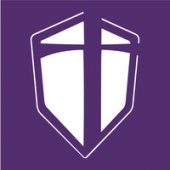
#24: Trevecca Nazarene University
Trevecca Nazarene University conducts a four-year prelicensure BSN program through a unique partnership with nearby Belmont University. The two universities recently refined their consortium agreement to offer a streamlined “2-2” format. Students complete their first two years of pre-nursing and general education coursework at Trevecca. During the spring semester of year two, they apply to Belmont’s School of Nursing. If accepted, students then complete two years of nursing coursework and practicums at Belmont. The program offers enhanced learning through state-of-the-art simulation facilities, as well as hands-on practice through extensive clinical experiences in local hospitals and community clinics. At the completion of the program, graduates are eligible to take the NCLEX-RN national licensure examination.
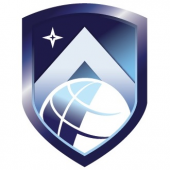
#25: Aspen University
Aspen University’s Nashville location sits on a 20,000-square-foot campus just four miles west of Nashville International Airport. The university’s hybrid BSN program is conducted in clinical partnership with Nashville General Hospital, NorthCrest Medical Center, and Trust Point Hospital. Students can select from day and night/weekend options in the fulltime accelerated three-year program. Aspen University’s BSN curriculum is specifically designed for students with no prior nursing experience. During year one, students with fewer than 41 prerequisite general education credits will take the pre-professional nursing component online. During years two and three, students will complete the nursing core component, which prepares them to sit for the NCLEX-RN licensure examination.
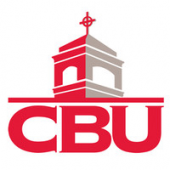
#26: Christian Brothers University
Christian Brothers University is the oldest collegiate degree-granting institution in the city of Memphis. The university has one of the most diverse student bodies in the South: half of all students are Caucasian, one-third are African-American, and roughly 5% are Asian-American. Christian Brothers University offers an RN-to-BSN degree completion pathway for ADN- or diploma-prepared registered nurses. Established in 2011, the program blends face-to-face classroom instruction with online coursework along a convenient schedule. Students participate in the Memphis Immersion Experience, a four-day session of active learning about the city’s most vulnerable populations. They also have the opportunity to explore global community healthcare through an international mission trip. In the fall of 2020, Christian Brothers University launched a traditional BSN program that prepares undergraduate students for initial registered nursing licensure.
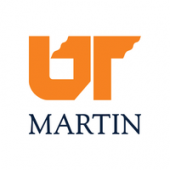
#27: University of Tennessee at Martin
The University of Tennessee at Martin is one of three primary campuses in the University of Tennessee System. The university’s Department of Nursing is part of the broader College of Education, Health, and Behavioral Sciences. UT Martin offers two baccalaureate nursing programs: a traditional four-year BSN and an RN-to-BSN completion option. The traditional BSN program graduates 30-40 students annually. These graduates perform exceedingly well on the NCLEX licensure exam, with a 96% first-time pass rate over the past decade. For five consecutive years, every BSN student has either secured employment or earned acceptance to a graduate nursing program within six months of licensure. UT Martin’s RN-to-BSN program is conducted in a convenient online format. Students may challenge many of the upper-level nursing course requirements by either passing a proficiency test or submitting a portfolio of work experiences.
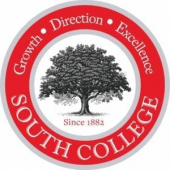
#28: South College
South College offers the full range of degree and certificate programs across its five campus locations. The School of Nursing provides a plethora of pathways to enter and advance within the profession. Undergraduates can pursue a practical nursing diploma or one of four BSN options: traditional, accelerated second degree, LPN bridge, and RN-to-BSN degree completion. At the graduate level, the school’s MSN program offers four nurse practitioner concentrations (family, psychiatric-mental health, pediatric primary care, adult-gerontology acute care) as well as a nurse executive focus. All MSN tracks are also available as postgraduate certificates. Finally, the school’s terminal DNP program offers family nurse practitioner, nurse anesthesia, and nurse executive concentrations. South College’s BSN and MSN programs are accredited by the Commission on Collegiate Nursing Education, while its DNP and postgraduate certificate programs are currently applying for CCNE accreditation.
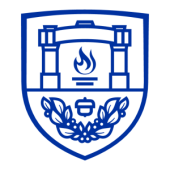
#29: Tennessee Wesleyan University
Tennessee Wesleyan University’s Fort Sanders Nursing Department offers two pathways to a bachelor of science degree. Traditional undergraduates can pursue a prelicensure BSN that features a clinical partnership with Covenant Health’s Fort Sanders Regional Medical Center. Students participate in four semesters of clinical experiences, gaining exposure to critical healthcare fields like acute care, intensive care, and mental health. They also complete coursework in adult health, community health, maternal care, and pediatrics. The prelicensure program graduates 40-60 students annually. These BSN candidates have scored a 92% NCLEX pass rate over the past decade, including a stellar 97% pass rate in 2018. The Fort Sanders Nursing Department also offers an online RN-to-BSN completion program that accepts both associate degree- and diploma-prepared nurses. Students meet face-to-face one day per semester for orientation and advisement, and they participate in extensive student-driven clinical projects. The entire curriculum may be completed in as little as three semesters.
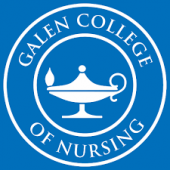
#30: Galen College of Nursing
Galen College of Nursing was established by Humana Health Institutes in 1989. The college now operates a dozen campuses across the United States, as well as a thriving online division. The school’s Nashville campus offers two associate degree in nursing pathways (generic, LPN bridge) as well as an accelerated three-year bachelor of science in nursing. Students with a second degree or heavy transfer credits may complete the BSN program in just two years of fulltime study. The ADN and BSN prelicensure programs emphasize advanced coursework, hands-on learning, and clinical rotations at major hospitals across Nashville. Galen College of Nursing also offers online post-licensure programs for registered nurses, including an RN-to-BSN degree completion pathway and two MSN specializations (nursing and healthcare leadership, nurse educator).
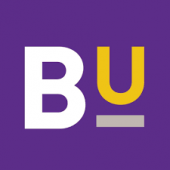
#31: Bethel University
Bethel University consists of three academic divisions focused respectively on arts and sciences, professional studies, and health sciences. The College of Health Sciences offers two baccalaureate nursing pathways: a traditional prelicensure program and an RN-to-BSN completion program. The traditional pathway graduates a small cohort of just 15-30 students each year. These students enjoy exceptional outcomes, including a 93% NCLEX pass rate over the past decade and a 100% job placement rate among those seeking employment. The RN-to-BSN pathway conducts all coursework online, with clinical requirements completed in the student’s local area. Fulltime students can complete the program’s curriculum in less than a year. Online tutoring services are even included in the RN-to-BSN tuition cost.
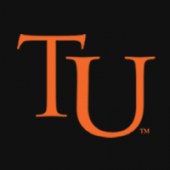
#32: Tusculum University
Tusculum University is the oldest institution of higher education in Tennessee, the twenty-eighth oldest in the nation, and the oldest coeducational institution affiliated with the Presbyterian Church. Indeed, the school’s campus is listed on the National Register of Historic Places. The university’s School of Nursing offers a BSN program with two pathways (traditional undergraduate, RN-to-BSN completion) and an MSN program for aspiring family nurse practitioners. The traditional BSN program is noted for its small classes and clinical groups, with typically just 15-25 students in each graduating cohort. The BSN class of 2018 scored a strong 85% first-time pass rate on the NCLEX licensure examination. Tusculum University’s RN-to-BSN pathway is open to all registered nurses who hold a current, unencumbered license and an associate degree in nursing from a state-approved prelicensure program. The MSN curriculum offers several tracks including traditional (for BSN-prepared nurses), RN-to-MSN (for ADN-prepared nurses), and a streamlined FNP post-master’s certificate.
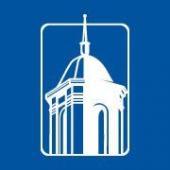
#33: Tennessee State University
Tennessee State University’s School of Nursing offers several programs approved by the Tennessee Board of Nursing and fully accredited by the Accreditation Commission on Education in Nursing. Pathways are available at both the baccalaureate and graduate levels. Candidates who are new to nursing can enroll in the school’s traditional BSN program in preparation for the NCLEX-RN licensure examination. The graduating class of 2019 scored an impressive 85% first-time NCLEX pass rate. Existing RNs can enroll in the school’s career mobility program, which conducts a fully online RN-to-BSN curriculum. A new cohort is admitted each summer, and the program takes no more than one calendar year to complete. At the graduate level, TSU offers concentrations for aspiring family nurse practitioners, holistic nurses, and nurse educators. Students may pursue any of these concentrations as either an MSN degree or a post-graduate certificate.

#34: Tennessee Valley Regional Practical Nursing Program
The Tennessee Valley Regional Practical Nursing Program is a consortium offering conducted by Tennessee College of Applied Technology’s Shelbyville and McMinnville campuses. The program requires 1,296 total hours of study, including 450 hours in maternity, medical-surgical, mental health, and pediatric clinical experiences. After completing their clinical hours, LPN students will be able to assess patient needs, evaluate and interpret lab results, and determine appropriate nursing measures for medical problems. Coursework covers important topics like professional vocational relations, nursing fundamentals, and work ethic. The Tennessee Valley Regional Practical Nursing Program prepares approximately 70 students annually to sit for the NCLEX-PN licensure examination. Over the past decade, these LPN graduates have achieved an excellent 94% first-time NCLEX pass rate.
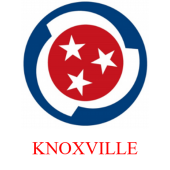
#35: Tennessee College of Applied Technology - Knoxville
Graduates of the career training programs at TCAT Knoxville enjoy a 92% employment rate and an overall 96% pass rate on licensing examinations. This includes an excellent 94% first-time NCLEX-PN pass rate over the past decade for the college’s practical nursing diploma program. The TCAT Knoxville LPN curriculum requires 1,296 total hours, including 30 hours of long-term care clinical rotations that lead to a nurse assistant certificate. Practical nursing students will complete the entire plan of study over 12 months on a fulltime day schedule. Coursework covers basic nursing skills, medical-surgical nursing, nutrition, and pharmacology. Graduates of the TCAT Knoxville LPN program are prepared to pursue entry-level positions in hospitals, nursing homes, clinics, and physician’s offices.

#36: Appalachian Regional Practical Nursing Program
The Appalachian Regional Practical Nursing Program is a consortium offering conducted by Tennessee College of Applied Technology’s Oneida/Huntsville and Jacksboro campuses. This LPN program consists of 1,296 clock hours and requires one year of fulltime study to complete. The curriculum combines coursework with clinical experiences at local healthcare centers. Coursework covers important areas like anatomy, physiology, disease processes, nursing principles, and pediatrics. The program graduates approximately 50 students annually who are well prepared for the NCLEX-PN licensure examination. Over the past decade, graduates of the Appalachian Regional Practical Nursing Program have averaged an excellent 93% first-time NCLEX pass rate.

#37: Tennessee College of Applied Technology - Athens
TCAT Athens is accredited by the Council on Occupational Education. The school provides career-centered programs ranging from administrative office technology to welding. The college’s practical nursing program is approved by the Tennessee Board of Nursing. The 12-month curriculum for this fulltime day program requires 1,296 clock hours, including more than 500 hours of hands-on clinical experience. After completing 432 hours, students receive a nursing assistant certificate. Program graduates can sit for the NCLEX-PN licensure examination and, upon successful completion, pursue employment in private hospitals, assisted living centers, schools, physician’s offices, home healthcare, and rehabilitation centers. TCAT Athens graduates approximately 40 LPN students each year, with a strong 92% first-time NCLEX pass rate over the past decade.

#38: Tennessee College of Applied Technology - Elizabethton
TCAT Elizabethton has a practical nursing program that prepares more than 100 students annually for the NCLEX-PN licensure examination. Over the past decade, these LPN graduates have averaged a 91% first-time NCLEX pass rate. The program combines classroom instruction and simulation lab experiences with clinical rotations at area hospitals, assisted living facilities, and clinics. Coursework covers nutrition, body systems, growth and development, pharmacology, administering medication, personal and community health, medical-surgical nursing, and fundamental nursing skills. Upon completion of 120 hours of study, including 30 hours of clinical experience in long-term care, students receive a nursing assistant certificate and qualify for the nurse aide certification exam. Upon completion of the entire program, which requires 1,296 total hours of study, graduates receive a practical nursing diploma.
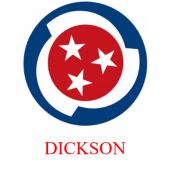
#39: Tennessee College of Applied Technology - Dickson
With programs ranging from building construction technology to practical nursing, TCAT Dickson boasts an overall 79% employment rate and 83% completion rate. The college’s LPN pathway leads to a nursing assistant certificate after the first trimester and a practical nursing diploma upon completion of the entire program. Nursing students complete 1,296 clock hours over twelve months fulltime. The curriculum covers areas such as basic nursing skills, nutrition, obstetrics, pharmacology, and psychology. Supervised clinical experiences allow students to care for medical, obstetric, pediatric, and surgical patients. The TCAT Dickson LPN program graduates approximately 100 students annually, with an impressive 91% first-time NCLEX-PN pass rate over the past decade.
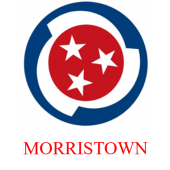
#40: Tennessee College of Applied Technology - Morristown
TCAT Morristown is a career training institute that provides certificate and diploma programs in a variety of in-demand fields, including computer information technology, HVAC, industrial maintenance, and practical nursing. The college boasts an impressive 87% employment rate and 99% licensure rate across all programs. The practical nursing program graduates 60-80 students annually, with a strong 92% first-time NCLEX-PN pass rate over the past decade. This fulltime program consists of 1,296 clock hours completed over twelve months. Students are immersed in coursework on crucial topics like medication administration, intravenous therapy, maternity health, and medical-surgical nursing. Upon completion of the LPN program, graduates receive a diploma.
